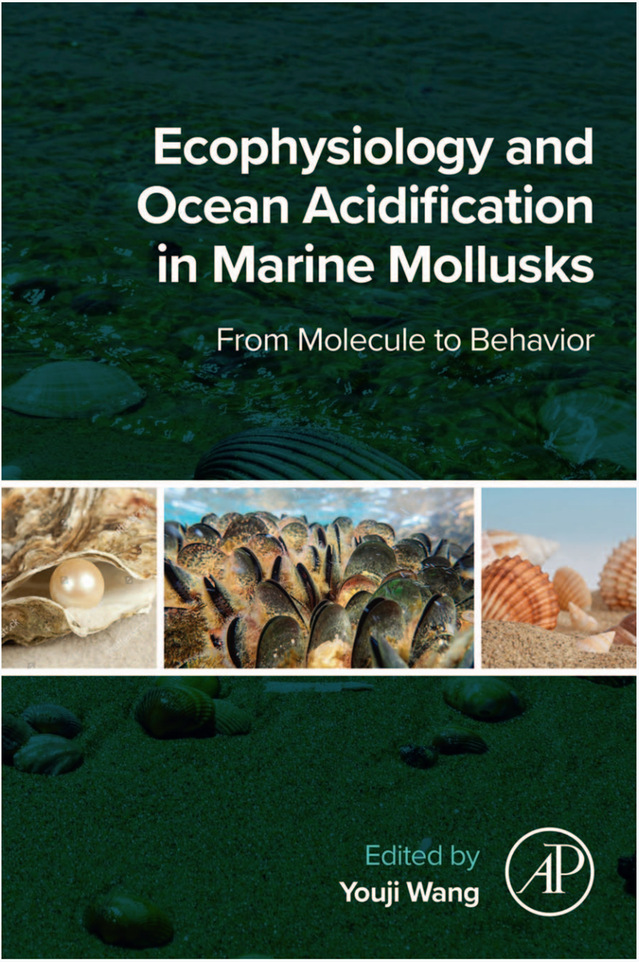Recently, the English monograph Ecophysiology and Ocean Acidification in Marine Mollusks: from molecule to behavior, chiefly edited by Prof. Wang Youji of Shanghai Ocean University, was published by Elsevier Academic Press, a famous academic publishing group. It is the world's first English academic monograph to systematically introduce ocean acidification and the physiology and ecology of marine mollusks, filling a gap in the field.

The monumental work, having more than 120,000 words and taking 2 years to complete, is co-authored by 21 scholars from Zhejiang University, Research Center for Eco-Environmental Sciences under the Chinese Academy of Sciences, Guangdong Ocean University, the University of Hong Kong, the South China Sea Institute of Oceanology under the Chinese Academy of Sciences, Sun Yat-sen University, the City University of Hong Kong, the University of Rostock (Germany), the University of Gothenburg (Sweden), and the Alfred Wegener Institute for Polar and Marine Research (AWI) (Germany), and other units at home and abroad, providing new insights for studying global change biology and marine physiological ecology, as well as valuable reference materials for students and related researchers.
The monograph consists of eight chapters, focusing on systematic exploration and discussion on the ecophysiological effects of ocean acidification on marine mollusks as a global problem. It systematically discusses and summarizes the research results on the ecophysiological effects of ocean acidification on marine mollusks, covering an overview of ocean acidification and marine mollusks, the impacts of ocean acidification on mollusk reproduction, growth and development, metabolism, immunity, and host microbial interactions, behaviors, and proteomics, as well as the limitations and perspectives of the research on ocean acidification and physiological ecology.
According to Prof. Gao Kunshan of Xiamen University, ocean acidification is one of the major environmental issues caused by human carbon emissions, and its ecological and economic impacts have been widely concerned. Ecophysiology and Ocean Acidification in Marine Mollusks: from molecule to behavior, edited by Prof. Wang Youji, for the first time in the world, systematically explores and summarizes the physiological and ecological impacts of ocean acidification on mollusks, and analyzes its effector mechanism at the molecular level, providing important theories and parameters for predicting the ecological and aquatic disasters of ocean acidification. The book is highly readable and valuable as a monograph on the effects of ocean acidification on mollusks, and is also an important reference for students and researchers exploring the issues concerning oceanic global change.
The monograph is a comprehensive international presentation of systematic results of research on ocean acidification and physiological ecology. Its publication indicates that the work carried out by the research team of Shanghai Ocean University in the field of marine mollusk ecophysiology research has been widely recognized by the international academic community.
Ocean acidification refers to the gradual acidification of seawater as a result of the absorption and release of excess carbon dioxide (CO2) from the atmosphere. Since the industrial revolution, the pH value of seawater has dropped by 0.1, and the increase in the acidity of seawater will change the balance of seawater chemistry, posing a huge threat to a wide range of marine organisms and even ecosystems, and has been the focus of international marine scientific research for many years.